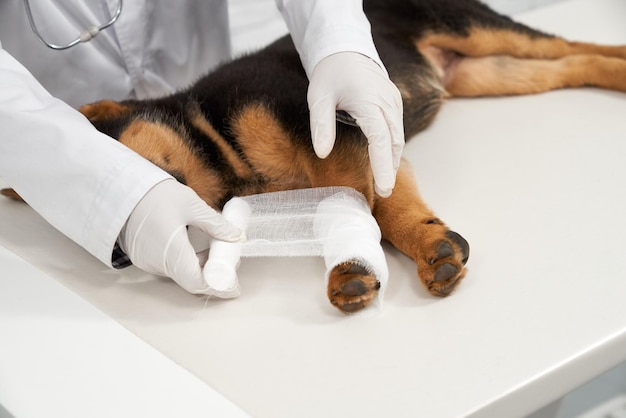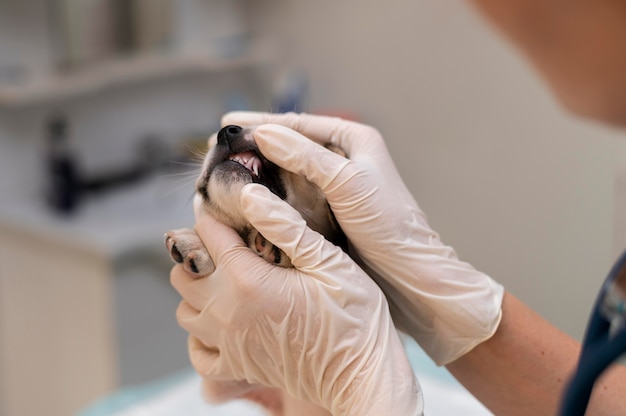Understanding ACL Repair Surgery for Highland Park Pets

Understanding ACL Repair Surgery for Highland Park Pets
When your pet suddenly starts limping or won’t put weight on a back leg, it’s only natural to feel alarmed and wonder what’s wrong. For many dogs and some cats in Highland Park and surrounding communities, a torn ACL—properly called the cranial cruciate ligament (CCL) in pets—is a common culprit behind sudden lameness. At Pets4Life, your trusted veterinary hospital located at 661 Central Avenue, Highland Park, IL 60035, we know how stressful it can be to see your pet in pain. That’s why our veterinary team is committed to helping pet owners understand ACL repair surgery for pets, from early warning signs to recovery support.
In this blog, we’ll guide you through how ACL injuries occur, the symptoms to watch for, what’s involved in veterinary orthopedic surgery, and how our team at Pets4Life supports your pet before and after ACL repair surgery in Highland Park. Whether you are searching for a “vet near me” who can provide advanced orthopedic care or want to learn more about the ACL repair services we offer, you’ll find the information and reassurance you need here.
Recognizing ACL Injuries in Pets: Signs and Symptoms
Knowing when your pet is experiencing a knee injury is essential, especially since early intervention can make a significant difference in recovery outcomes. Key symptoms of an ACL tear in pets include sudden limping or lameness in one of the back legs. You may notice your dog holding its leg up, avoiding walking or running, or struggling to rise after resting. Sometimes, the lameness appears to improve with rest but returns with activity. Swelling around the knee joint, visible discomfort, and a reluctance to climb stairs or jump are also common warning signs. In some cases, you may even hear a clicking sound when your pet moves the affected leg.
Additional signs to watch for are stiffness after exercise, a noticeable decrease in activity level, or muscle loss in the affected leg over time. Cats, while less commonly affected, can still suffer from ACL injuries; you might observe subtle changes in their jumping habits or grooming routines. If your pet displays any of these symptoms, it’s important to schedule an appointment with your veterinary team for a proper evaluation. Delaying care can lead to further joint damage or arthritis, which can impact your pet’s long-term mobility and quality of life.
Understanding Why ACL Injuries Happen in Highland Park Pets
ACL injuries in pets often occur during active play, sudden turns, or jumps—common scenarios for energetic dogs at local parks or yards in Highland Park. However, not all ACL injuries are the result of a single traumatic event; many are the result of gradual ligament weakening over time. Factors that contribute to ACL tears include genetics, obesity, age, and even breed predispositions. Large breed dogs, such as Labradors and Rottweilers, are particularly at risk, but any dog or cat can suffer this injury. Additionally, pets that are overweight put extra strain on their joints, increasing the likelihood of ligament damage.
Environmental factors unique to Highland Park and surrounding communities, such as slippery sidewalks during winter or uneven outdoor terrain, can further contribute to knee injuries in pets. Regular activity is important for your pet’s health, but sudden bursts of exercise or jumping off high surfaces can sometimes be enough to result in a torn ligament. Understanding these risk factors can help you make informed choices about your pet’s daily routine and recognize when it might be time to visit a veterinarian near you for guidance.
Veterinary Orthopedic Surgery: What to Expect with ACL Repair in Highland Park
When your pet is diagnosed with an ACL tear, our veterinary orthopedic surgery options at Pets4Life are designed to restore comfort and mobility as quickly and safely as possible. The process begins with a thorough physical examination and diagnostic imaging, such as digital radiology or ultrasounds. These tools help our veterinary professionals confirm the extent of the injury and rule out other causes of lameness.
Treatment for ACL injuries in pets often involves surgical repair, especially for active dogs or pets weighing over 15 pounds. There are several surgical techniques available, but the most common procedures performed by our veterinarians include extracapsular repair and tibial plateau leveling osteotomy (TPLO). The specific surgical approach is tailored to your pet’s size, age, activity level, and individual anatomy. The goal is to stabilize the knee joint, minimize pain, and promote long-term joint health.
During ACL repair surgery in Highland Park, your pet will receive comprehensive care and monitoring from our experienced veterinary team. Anesthesia, pain management protocols, and sterile surgical techniques are all part of our commitment to your pet’s safety. After surgery, we provide detailed instructions for home care and schedule follow-up visits to track your pet’s progress. You can find more details about our ACL repair services and an overview of our orthopedic care options on our website.
Supporting Your Pet at Home: Recovery and Prevention
Successful recovery from veterinary orthopedic surgery in Highland Park depends on both professional care and your active involvement at home. After ACL repair surgery, your pet will need a period of rest, restricted activity, and gradual reintroduction to exercise. Steps for a smooth recovery include confining your pet to a small, comfortable area, using a leash for brief bathroom breaks, and avoiding stairs or slippery floors. Our veterinarians will provide pain medications and physical therapy recommendations to support healing and reduce discomfort.
Other important aspects of recovery involve monitoring the surgical site for swelling, redness, or discharge, keeping follow-up appointments with our veterinary team, and reporting any concerning changes in your pet’s behavior or mobility. Most pets can return to normal activity within several months, but patience and consistent care are crucial for the best results.
Preventing future ACL injuries includes maintaining a healthy weight, providing regular low-impact exercise, and avoiding sudden, intense bursts of activity. For pets in Highland Park and surrounding communities—where icy sidewalks or busy parks may pose additional risks—consider using pet-safe traction aids in winter or supervising playtime to prevent slips and falls. Our veterinary professionals are always happy to discuss personalized prevention strategies during your pet’s wellness examination.
When to See a Veterinarian Near You for ACL Injuries
Knowing when to seek veterinary care for a suspected ACL injury is vital for your pet’s long-term health. If your pet suddenly becomes lame, refuses to bear weight on a leg, or shows signs of persistent discomfort, it’s time to contact your veterinarian. Additional red flags include swelling around the knee, inability to rise or walk, or worsening lameness despite rest. For pets recovering from surgery, any signs of infection, loss of appetite, or sudden behavioral changes warrant prompt attention.
At Pets4Life, we encourage pet owners to trust their instincts—if something seems off with your pet’s gait or behavior, scheduling a prompt evaluation can make all the difference. Our veterinary team will assess your pet’s condition, discuss treatment options, and create a customized recovery plan. If you are searching for the best veterinarian near me for ACL repair surgery in Highland Park, our experienced veterinary professionals are ready to help.
Your Partners in Pet Mobility: Schedule ACL Repair Surgery in Highland Park
Seeing your beloved pet struggle with pain or lameness is never easy, but you don’t have to face it alone. At Pets4Life, our veterinarians are dedicated to providing compassionate, expert care for pets in Highland Park and surrounding communities. From early diagnosis to advanced veterinary orthopedic surgery and ongoing wellness support, we are committed to helping your pet regain comfort and mobility.
If you suspect your pet may need ACL repair surgery in Highland Park or are searching for the best vet near me for orthopedic injuries, we invite you to schedule an appointment with our veterinary team. You can learn more about our ACL repair options or explore our full range of veterinary services online. For trusted, comprehensive veterinary services near me, call (847) 434-2745 or visit us at 661 Central Avenue, Highland Park, IL 60035 today.
Our veterinary professionals are here to answer your questions, provide individualized care, and support your pet’s journey to a healthy, active life. Your pet’s comfort and wellbeing are always our top priorities.
This blog is intended for informational purposes only and should not be considered a substitute for professional veterinary care. Always consult your veterinarian for personalized advice and treatment recommendations for your pet’s specific needs. For more information on ACL repair surgery for pets or veterinary orthopedic surgery in Highland Park, please contact our team directly.






